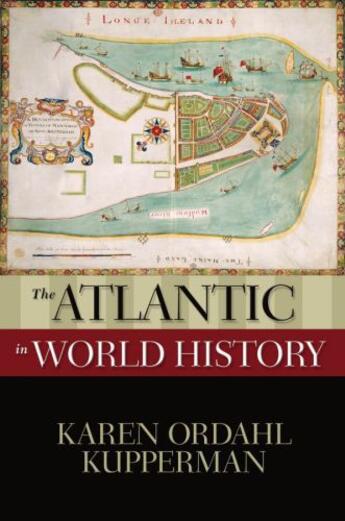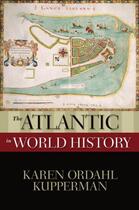-
Nombre de pages : (-)
-
Collection :
(-)
-
Genre :
(-)
-
Thème :
Non attribué
-
Prix littéraire(s) :
(-)
Résumé:
As Europeans began to move into the Atlantic in the late fifteenth century, first encountering islands and then two continents across the sea, they initiated a process that revolutionized the lives of people everywhere. American foods enriched their diets. Furs, precious metals, dyes, and many... Voir plus
As Europeans began to move into the Atlantic in the late fifteenth century, first encountering islands and then two continents across the sea, they initiated a process that revolutionized the lives of people everywhere. American foods enriched their diets. Furs, precious metals, dyes, and many other products underwrote new luxury trades, and tobacco became the first consumer craze as the price plummeted with ever-enlarging production.
Much of the technology that made new initiatives, such as sailing out of sight of land, possibly drew on Asian advances that came into Europe through North Africa. Sugar and other crops came along the same routes, and Europeans found American environments ideal for their cultivation. Leaders along the African coast controlled the developing trade with Europeans, and products from around the Atlantic entered African life. As American plantations were organized on an industrial scale, they became voracious consumers of labor. American Indians, European indentured servants, and enslaved Africans were all employed, and over time slavery became the predominant labor system in the plantation economies.
American Indians adopted imported technologies and goods to enhance their own lives, but diseases endemic in the rest of the world to which Americans had no acquired immunity led to dramatic population decline in some areas. From Brazil to Canada, Indians withdrew into the interior, where they formed large and powerful new confederations.
Atlantic exchange opened new possibilities. All around the ocean, states that had been marginal to the main centers in the continents' interiors now found themselves at the forefront of developing trades with the promise of wealth and power. European women and men whose prospects were circumscribed at home saw potential in emigration. Economic aspirations beckoned large numbers, but also, in the maelstrom following the Reformation, others sought the chance to worship as they saw fit. Many saw their hopes dashed, but some succeeded as they had desired. Ultimately, as people of African and European descent came to predominate in American populations, they broke political ties to Europe and reshaped transatlantic relationships.
Donner votre avis















